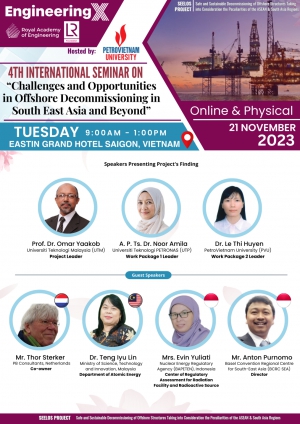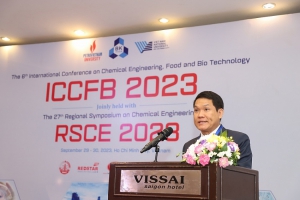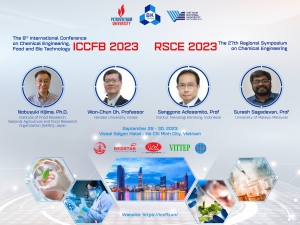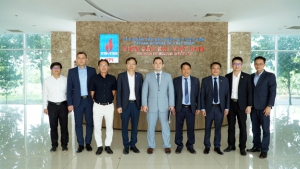Super User
The 4th International Seminar on "Challenges and Opportunities in Offshore Decommissioning in Southeast Asia and Beyond" convened on November 21, 2023, in Ho Chi Minh City, meticulously organized by Petrovietnam University (PVU). This event forms a critical dialogue within the scope of the international research project “Safe And Sustainable Decommissioning Of Offshore Structures Taking Into Consideration The Peculiarities Of The ASEAN & South Asia Regions,” supported by Engineering X, a consortium of the Royal Academy of Engineering and Lloyd’s Register Foundation.
This project, with a timeline from March 2020 to February 2024, involves a consortium of universities and research institutes, including Universiti Teknologi Malaysia (Malaysia), Universiti Teknologi PETRONAS (Malaysia), PVU (Vietnam), Newcastle University in Singapore (Singapore), Liverpool John Moores University (UK), Sea Sentinels Pte Ltd (Singapore), Mahidol University (Thailand), Institut Teknologi Bandung (Indonesia), R.L.Kalthia Ship Breaking Pvt. Ltd. (India).
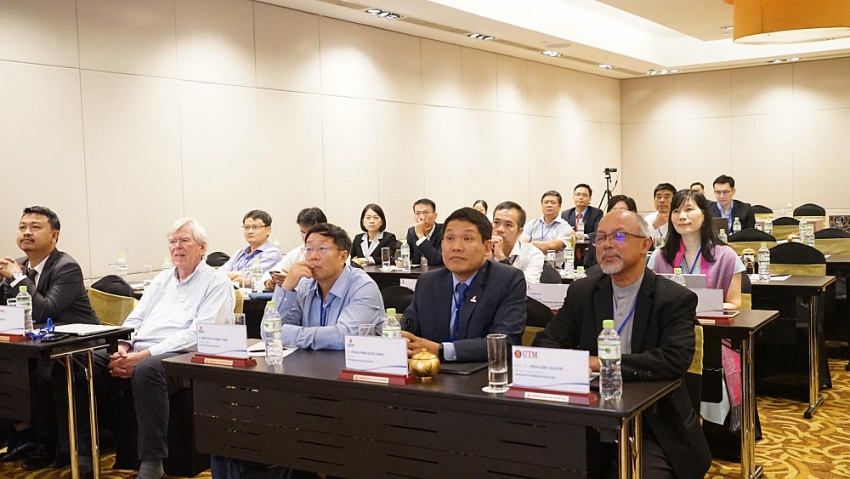 |
| CDelegates attending the Conference. |
The symposium attracted over 250 dedicated participants, including scientists, experts, managers, and representatives from a network of departments under Petrovietnam, the Vietnam Oil and Gas Group. They convened to share insights and address the pressing challenges in offshore decommissioning, particularly the management of hazardous waste from non-operational oil and gas structures, with special attention to NORM and mercury.
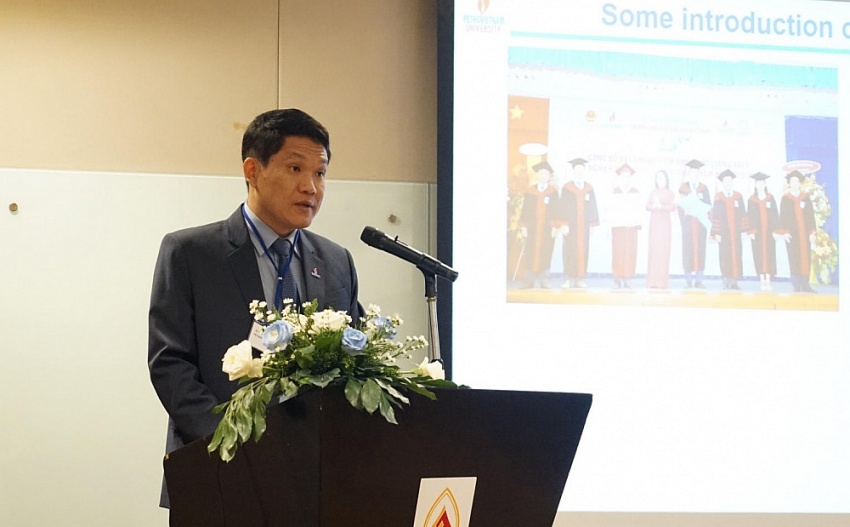 |
| Dr. Phan Minh Quoc Binh, Rector of PVU delivered the opening speech |
Dr. Phan Minh Quoc Binh, Rector of PVU, opened the seminar with a speech that underscored the event's aim to create a collaborative environment for sharing experiences and best practices in the sector. Notable was the presentation by Dr. Le Thi Huyen of PVU on "Onshore Decommissioning of Oil and Gas Structures: Preparedness of Recycling Facilities and Waste Management Facilities in ASEAN," which was one of the six insightful presentations delivered.
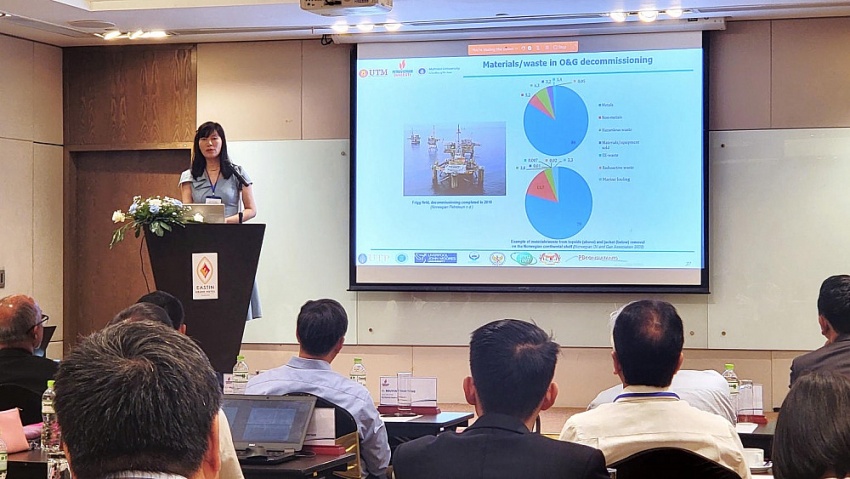 |
| The presentation of Dr. Le Thi Huyen - Faculty of Petroleum (PVU) |
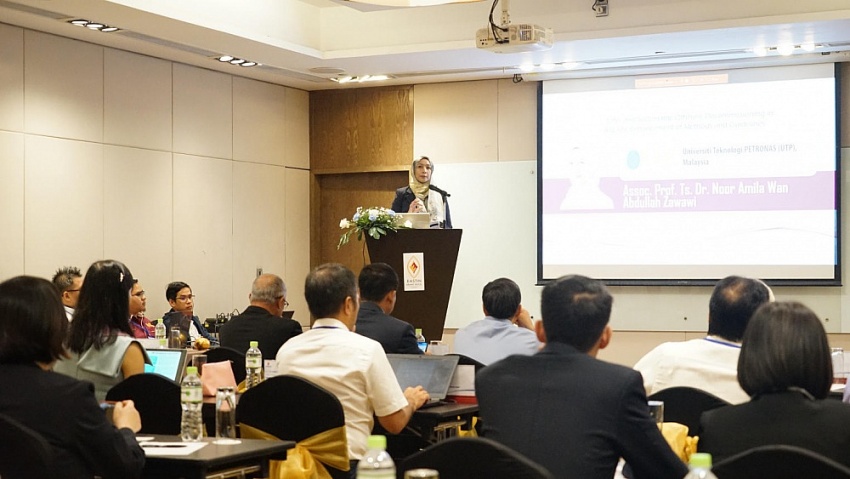 |
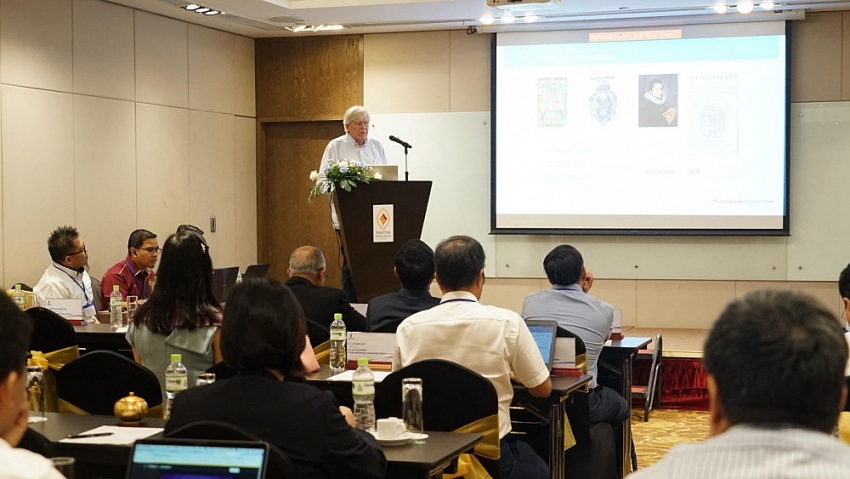 |
| The presentation of the experts |
The seminar facilitated in-depth discussions on enhancing offshore decommissioning methods in ASEAN, reducing risks, and managing radioactive waste in the oil sector. It successfully created a platform for discussing the transboundary movement of hazardous wastes and the sustainable cessation of offshore operations.
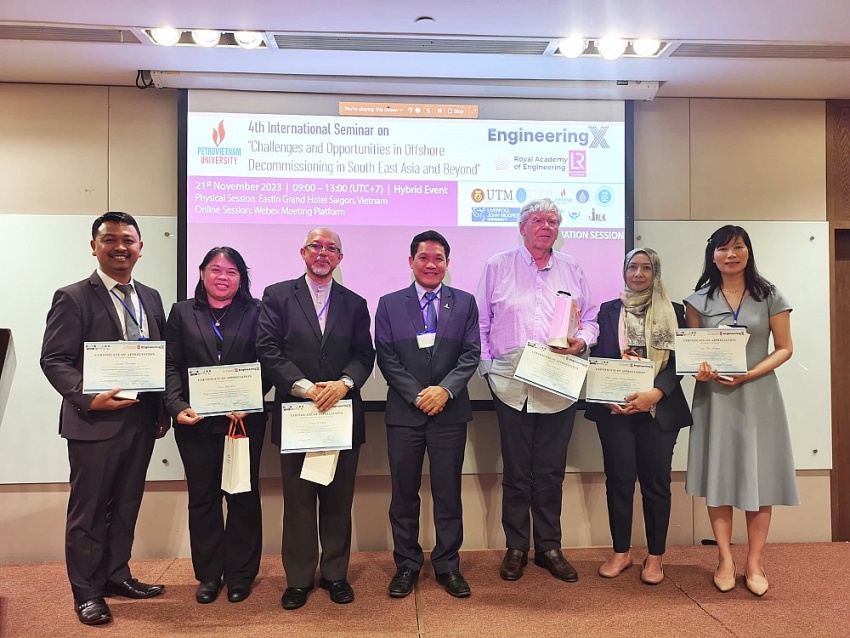 |
| Dr. Phan Minh Quoc Binh awarded certificates to experts presenting at the Conference |
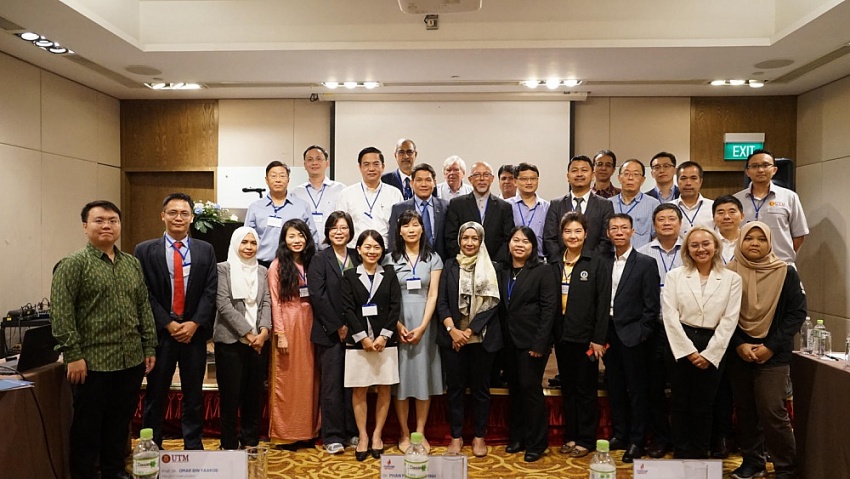 |
| The 4th international conference " Challenges and Opportunities in Offshore Decommissioning in Southeast Asia and Beyond " took place successfully. |
The seminar concluded with its objectives achieved, having fostered an environment of knowledge sharing and set a precedent for future collaboration in offshore decommissioning within Southeast Asia and beyond.
|
Petrovietnam University, as the host, is a subsidiary of Petrovietnam, committed to developing high-quality human resources and aligning scientific research and training with practical applications in the oil and gas industry. The university boasts a faculty with rich industrial experience, primarily in the oil and gas sector, affirming the strength of its educational offerings. The university's engineering training program is further enhanced by real-world perspectives. PVU's dedication to education is evidenced by its ABET-accredited petroleum engineering programs, guaranteeing an education that meets the highest international standards. In 2022, PVU’s faculty averaged 1.3 ISI publications/patents per member, showcasing substantial contributions to Petrovietnam's research initiatives../. |
We are delighted to announce that the SEELOS project consortium is organizing its Annual Seminar on 21st of November 2023, from 9:00 AM to 1:00 PM (UTC +7). This event encompassing both physical attendance at the Eastin Grand Hotel Saigon in Ho Chi Minh City, Vietnam, and virtual participation via an online meeting/conference platform. Building on the success of last year’s seminar, this year’s event promises to bring together distinguished speakers and scholars who are actively involved in the decommissioning of offshore oil and gas structures in the ASEAN region.
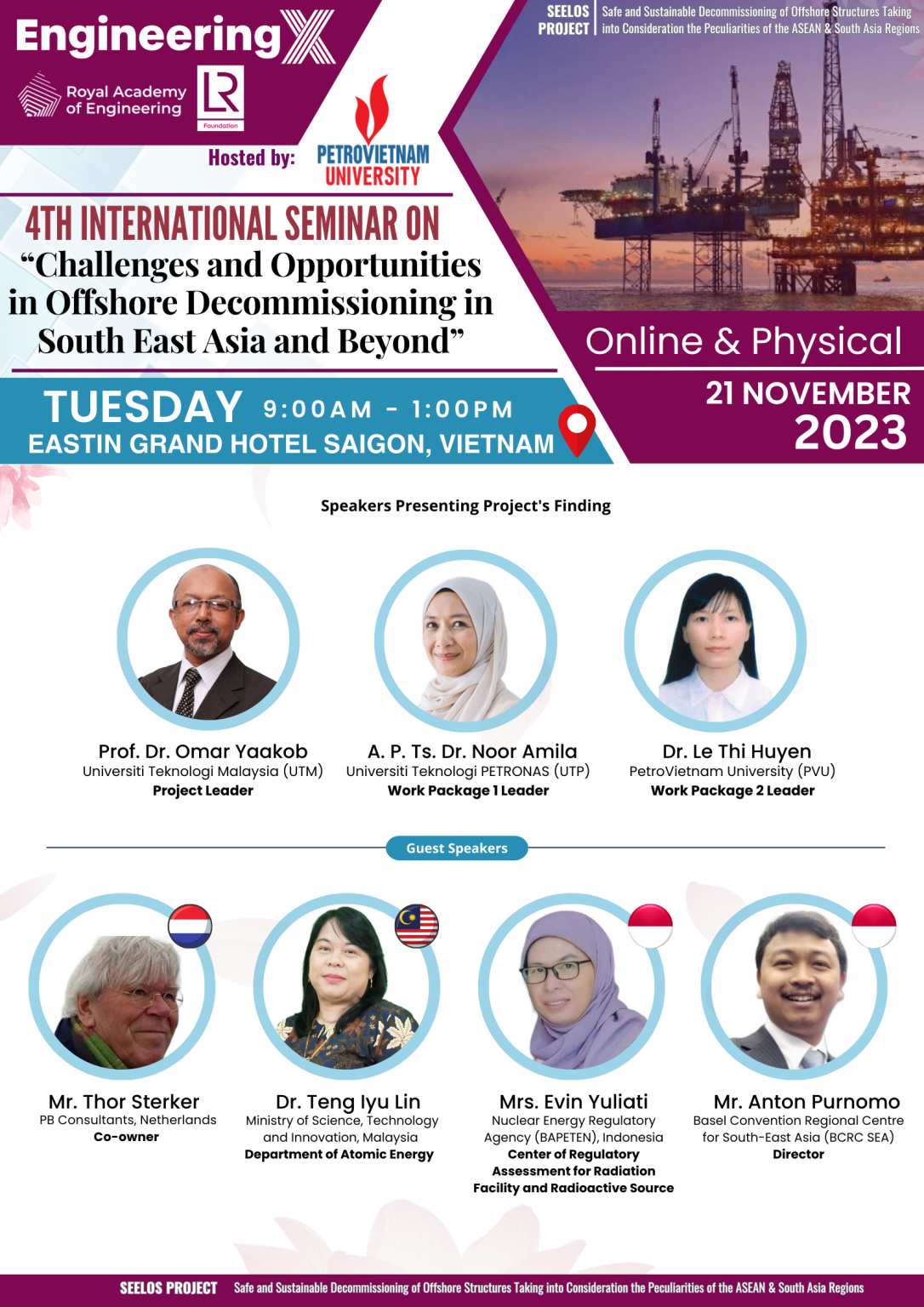
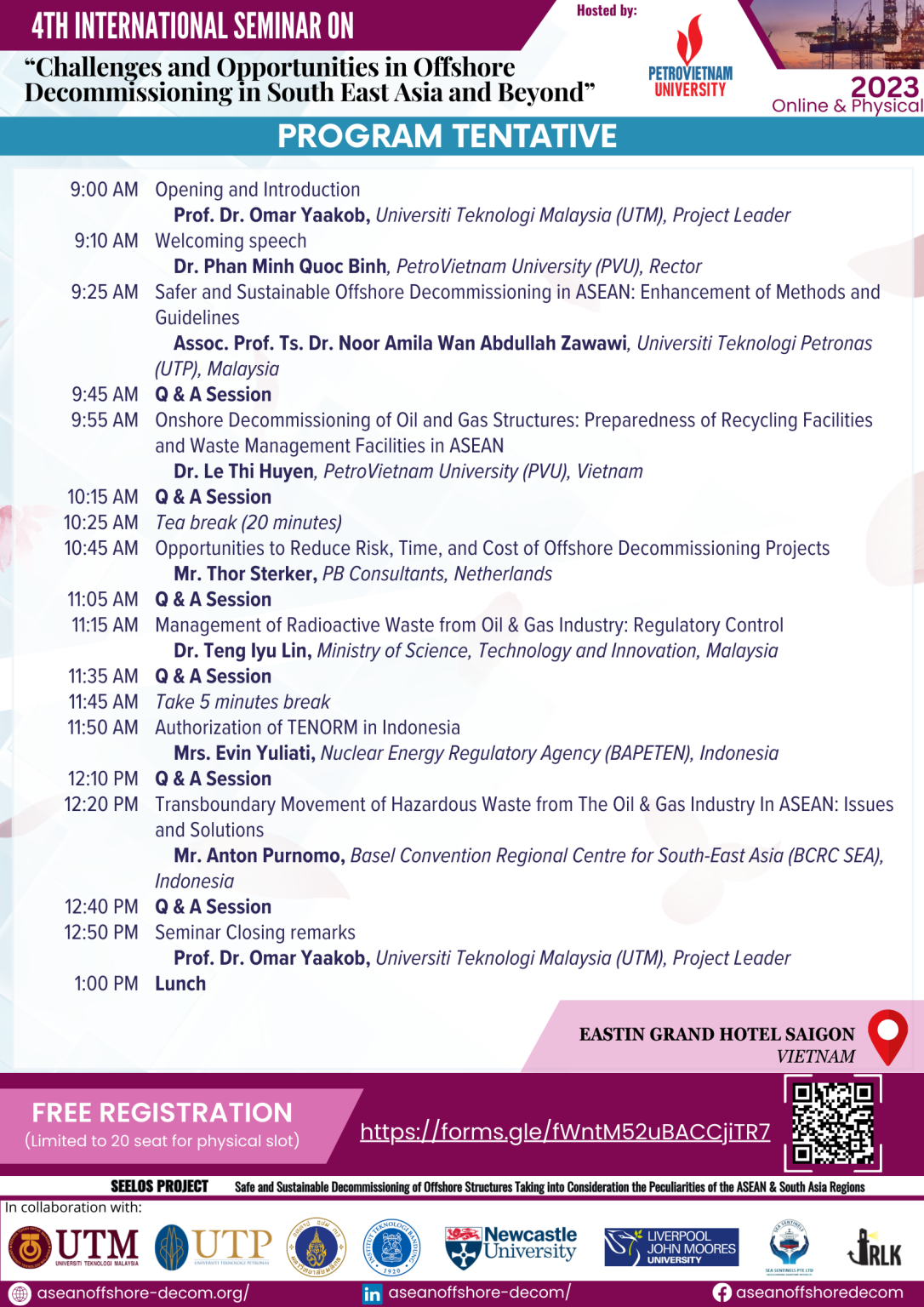
Invitation to all Academia, Industry Player, and Regulator
Engineering X funded by the Royal Academy of Engineering, United Kingdom, and Lloyd’s Register Foundation has awarded funding to a consortium of partners in ASEAN and South Asia to undertake a study on decommissioning of offshore structures in the regions commencing from March 2020 until February 2024.
This consortium involves the following partners:
- Universiti Teknologi Malaysia (Malaysia) – Project Coordinator
- Universiti Teknologi PETRONAS (Malaysia)
- PetroVietnam University (Vietnam)
- Newcastle University in Singapore (Singapore)
- Liverpool John Moores University (UK)
- Sea Sentinels Pte Ltd (Singapore)
- Mahidol University (Thailand)
- Institut Teknologi Bandung (Indonesia)
- R.L.Kalthia Ship Breaking Pvt. Ltd. (India)
The Seminar is intended to provide a platform for exchange of best practices in the decommissioning of offshore oil & gas structures; an insight of the challenges faced by the industry and regulators as well as solutions for transboundary movement of hazardous waste from decommissioned offshore oil and gas structures (with particular attention to NORM and mercury wastes). These will help towards achievement of safe and sustainable decommissioning of offshore installations in Southeast Asia.
You are cordially invited to attend this event. There is no registration fee.
This is a hybrid event. Attendance via physical session limited to the first 20 registered participants. There is unlimited slots for online session. Please complete the full details on the following link provided for registration before 17th of November 2023.
https://forms.gle/fWntM52uBACCjiTR7
SEMINAR VENUE: Eastin Grand Hotel Saigon in Ho Chi Minh City, Vietnam
HOSTED BY: PetroVietnam University (PVU), Vietnam
Related Information
Nearby Hotel
Muong Thanh Luxury Saigon Hotel – https://luxurysaigon.muongthanh.com/ (less than 5 mins. walk to Eastin Grand Hotel Saigon)
Golden Crown Hotel – https://goldencrownhotel.com.vn/ (less than 5 mins. walk to Eastin Grand Hotel Saigon)
Tan Son Nhat Hotel Saigon – https://www.tansonnhatsaigon.com/ (5 mins. drive or 10 mins. walk to Eastin Grand Hotel Saigon)
For more information, please contact Mr. Mohd Arif Ismail (phone: +60 13-628 8556 / email: This email address is being protected from spambots. You need JavaScript enabled to view it.) or Mr. Mohammad Nabil Jainal (phone: +60 12-770 7478 / email: This email address is being protected from spambots. You need JavaScript enabled to view it.)
Download: Training Courses Catalog 2024
Ngày 10/10/2023, tại TP Hồ Chí Minh, Trung tâm Bồi dưỡng nâng cao (ATC) - Trường Đại học Dầu khí Việt Nam (PVU) tổ chức hội thảo “Xây dựng văn hóa an toàn trong doanh nghiệp” dành cho cấp quản lý sản xuất, trưởng các bộ phận.
Hội thảo được chia sẻ bởi diễn giả Quản Hồng Đức - Chuyên gia tư vấn văn hóa an toàn doanh nghiệp, Giám đốc điều hành Công ty TNHH MTV The Liner Việt Nam (TLV).
 |
| Diễn giả Quản Hồng Đức |
Tham dự Hội thảo có ông Châu Khiếu Minh - Giám đốc ATC; các cán bộ làm công tác Sức khỏe - An toàn - Môi trường (HSE) từ các đơn vị: PVEP, PV GAS, PVCFC, PQPOC, NSRP, …
Hội thảo “Xây dựng văn hóa an toàn trong doanh nghiệp” cung cấp các kiến thức về văn hóa an toàn, chiến lược, các quy trình và công cụ giúp cho tổ chức bắt đầu xây dựng và duy trì văn hóa an toàn trong môi trường làm việc. Trong đó có các chuyên đề chính: Cấu trúc của văn hóa an toàn; 25 yếu tố của văn hóa an toàn - Ngôi nhà văn hóa an toàn; Lộ trình hoàn thiện của văn hóa an toàn - Đường cong Bradley; Khảo sát văn hóa an toàn - Cách xác định mức độ hoàn thiện của văn hóa an toàn; Mô hình giải pháp an toàn tích hợp (ISSM); Vai trò và trách nhiệm giải trình trong việc xây dựng văn hóa an toàn;…
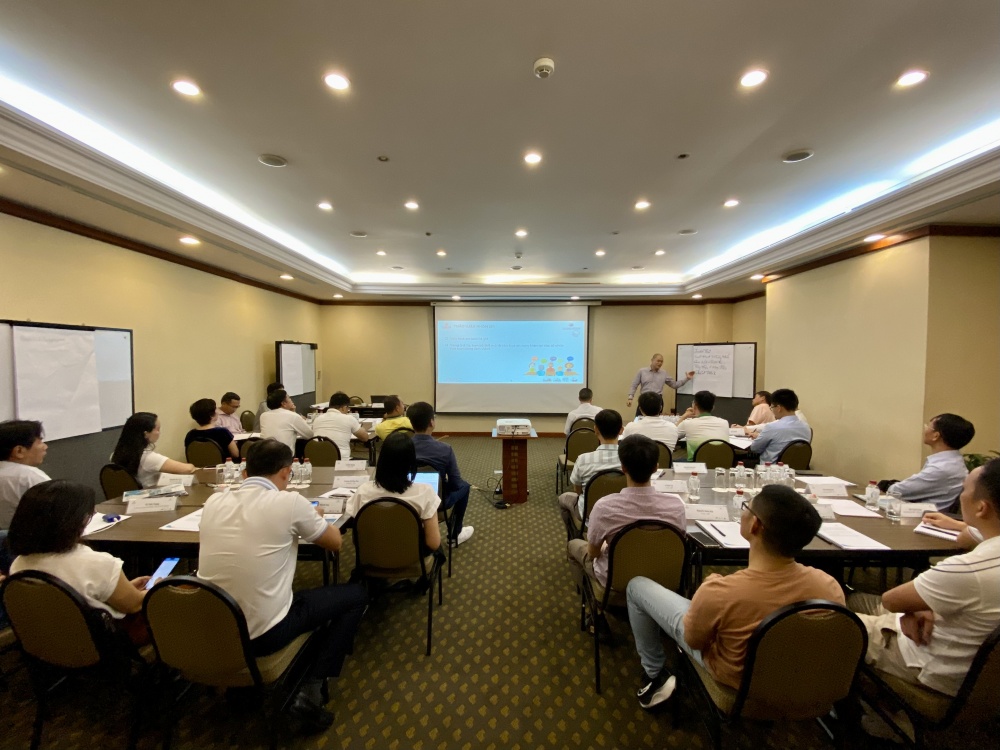 |
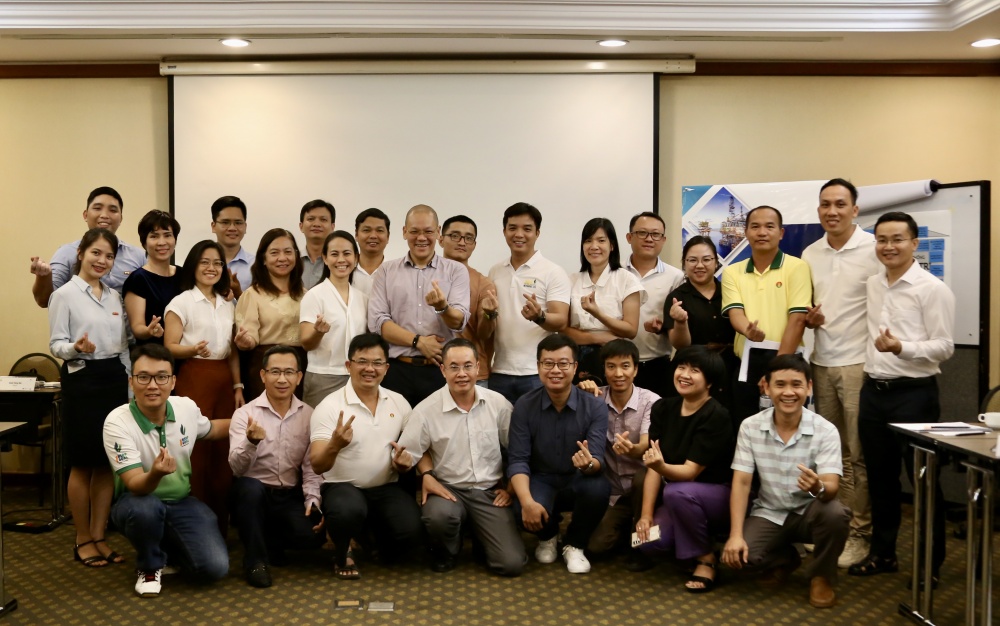 |
| Toàn cảnh hội thảo và các đại biểu tham dự |
Diễn giả Quản Hồng Đức nhấn mạnh: “Văn hóa an toàn luôn tồn tại trong các tổ chức và nhà máy sản xuất ở tất cả loại hình doanh nghiệp và quy mô sản xuất. Văn hóa an toàn có thể tồn tại độc lập hoặc là một phần của văn hóa doanh nghiệp. Văn hóa an toàn tại nơi làm việc được hình thành, củng cố, duy trì hoặc phát triển theo thời gian và được quyết định bởi cách thức mà doanh nghiệp vận hành hoặc tổ chức sản xuất”.
Văn hóa an toàn tại nơi làm việc là cách thức làm việc không chịu tác động bởi các hình thức giám sát mà người lao động thể hiện trong mọi hoạt động sản xuất và kinh doanh để bảo vệ và duy trì an toàn và sức khỏe cho chính bản thân họ trong suốt thời gian làm việc. Văn hóa an toàn tại nơi làm việc phát triển qua 4 giai đoạn, đó là giai đoạn bản năng, giai đoạn giám sát, giai đoạn tự chủ và giai đoạn đội nhóm.
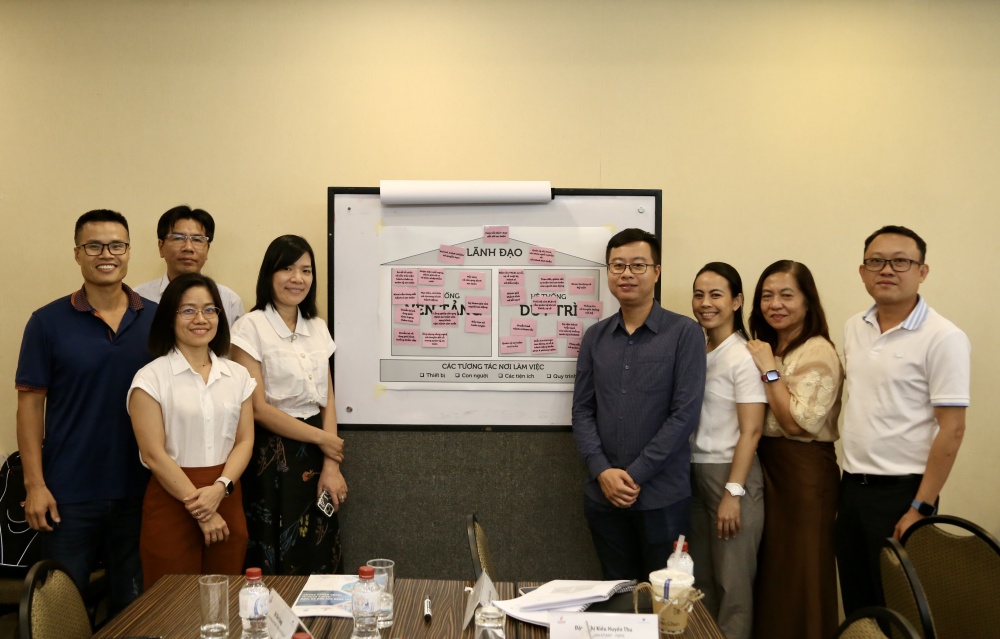 |
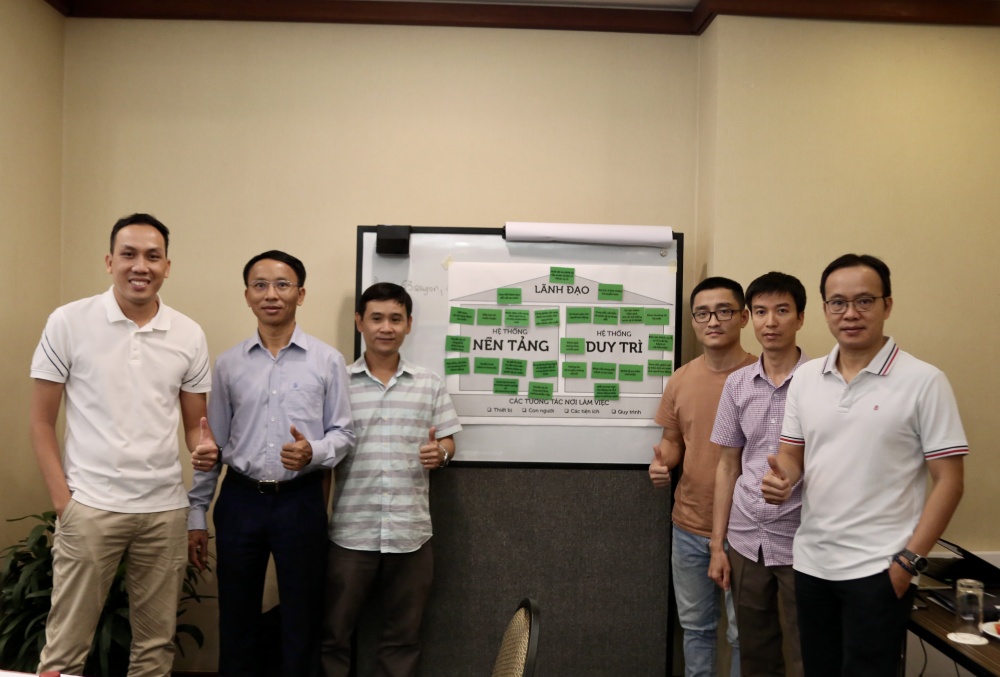 |
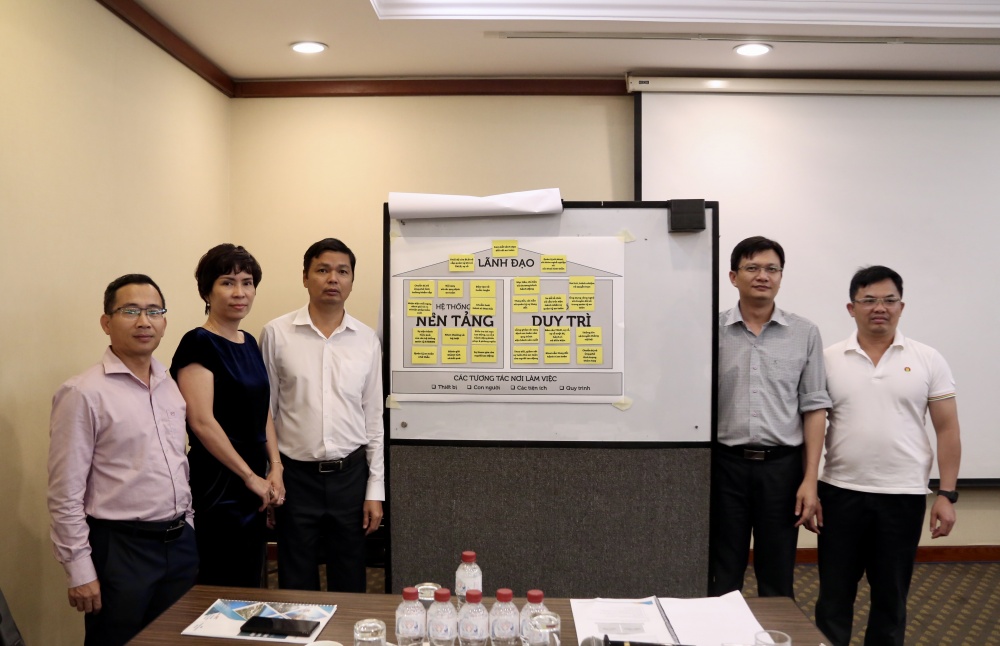 |
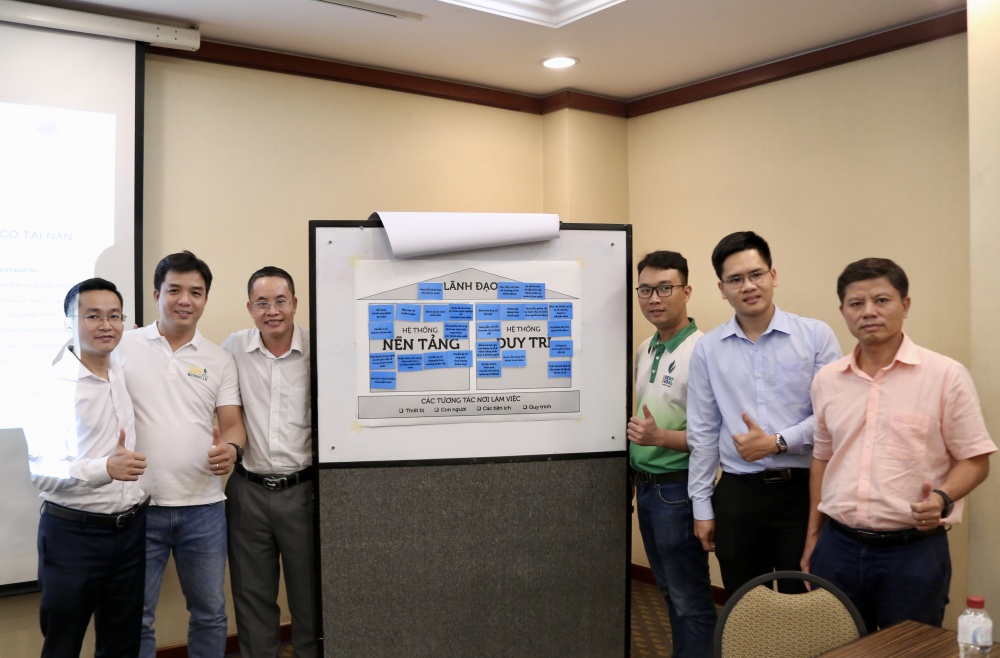 |
| Làm bài tập nhóm một trong những hoạt động tương tác, trao đổi tại Hội thảo |
Giai đoạn bản năng là giai đoạn người lao động làm việc theo cách hoàn toàn dựa vào kinh nghiệm, kỹ năng của bản thân. Người lao động ra quyết định dựa trên sự phỏng đoán và trực giác của họ. Hầu như không có nội quy, quy định và các hướng dẫn cụ thể về an toàn. Tỷ lệ tai nạn khá cao và hầu như không có báo cáo, thống kê. Giai đoạn này được chia làm 2 cấp độ: Cấp độ văn hóa của sự thoải mái - Người lao động làm việc theo bản năng, kinh nghiệm cá nhân; Cấp độ văn hóa của sự phòng ngừa - Bắt đầu có sự can thiệp của các quy định pháp luật. Ban giám đốc nhà máy đặt mục tiêu tuân thủ pháp luật.
Giai đoạn giám sát là giai đoạn người lao động làm việc với sự tuân thủ các nội quy, quy định và hướng dẫn cụ thể đối với công việc. Hầu như không có cơ hội cho sự phỏng đoán để ra quyết định. Tuy nhiên, tính kỷ luật lao động được duy trì nhờ vào cơ chế giám sát. Tỷ lệ tai nạn giảm và các tai nạn thường xảy ra vào những thời điểm mà sự giám sát giảm sút hoặc người lao động không duy trì được tính kỷ luật trong lao động. Giai đoạn này được chia làm 2 cấp độ: Cấp độ văn hóa tuân thủ - Bắt đầu có sự can thiệp của ban lãnh đạo và cấp quản lý nhà máy thông qua việc ban hành các nội quy, quy định, tiêu chuẩn an toàn mang tính nội bộ đối với các hoạt động sản xuất và kinh doanh; Cấp độ văn hóa kỷ luật - Bắt đầu có các cơ chế giám sát buộc người lao động phải thực hiện các nội quy, quy định, tiêu chuẩn. Các biện pháp chế tài, xử phạt được áp dụng đối với các vi phạm. Đây là giai đoạn bản lề và xây dựng nền tảng, đóng vai trò bước đệm cho những cấp độ phát triển cao hơn.
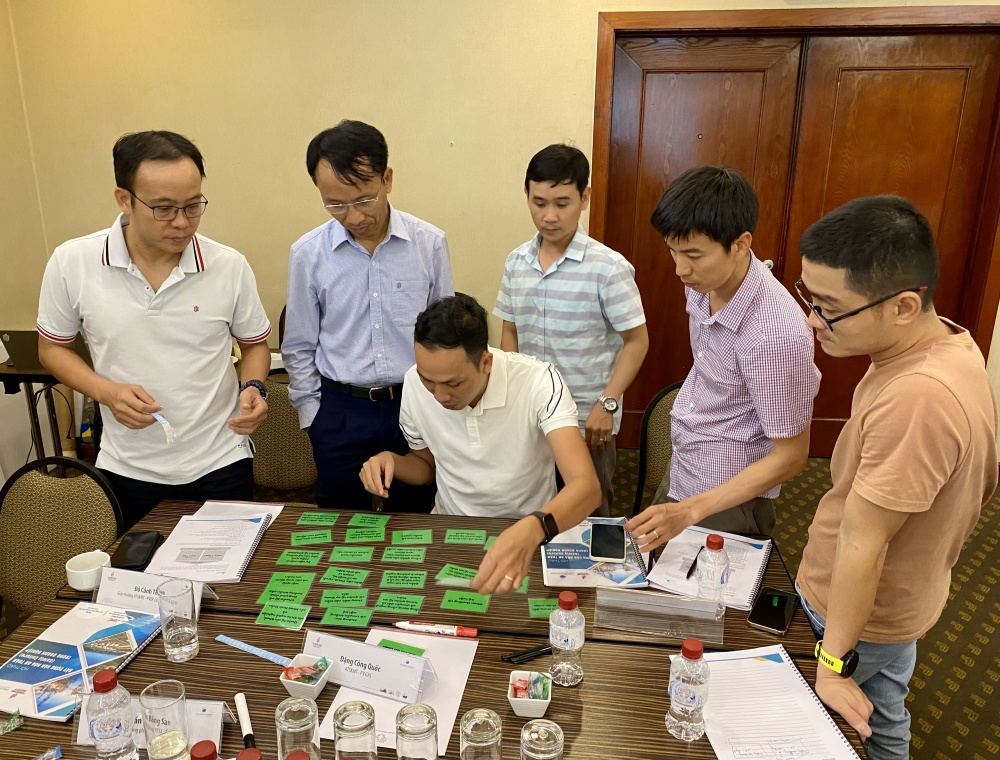 |
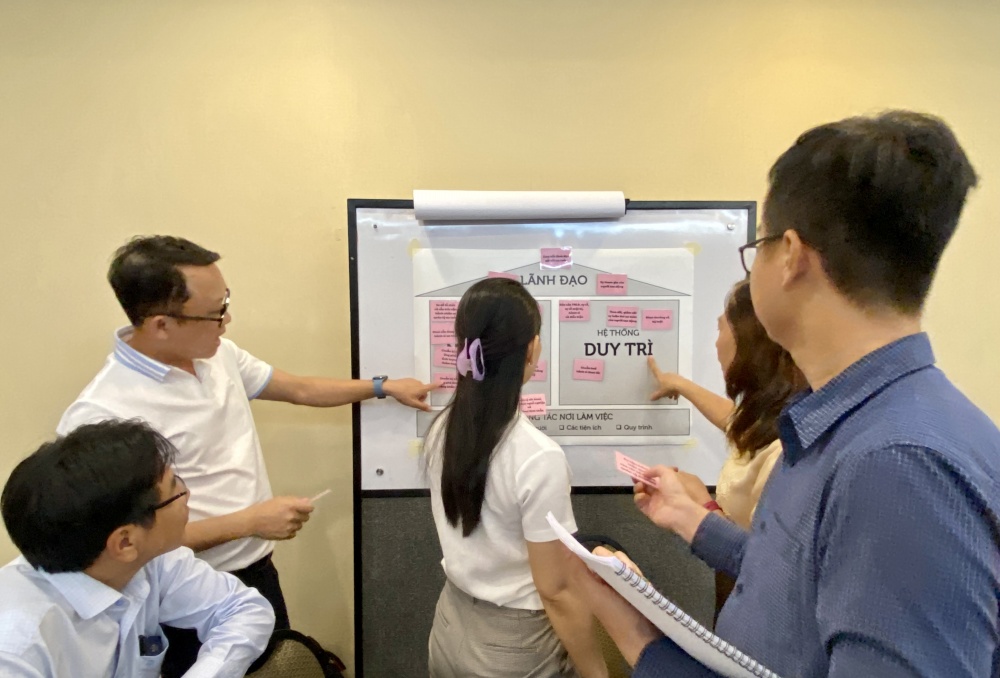 |
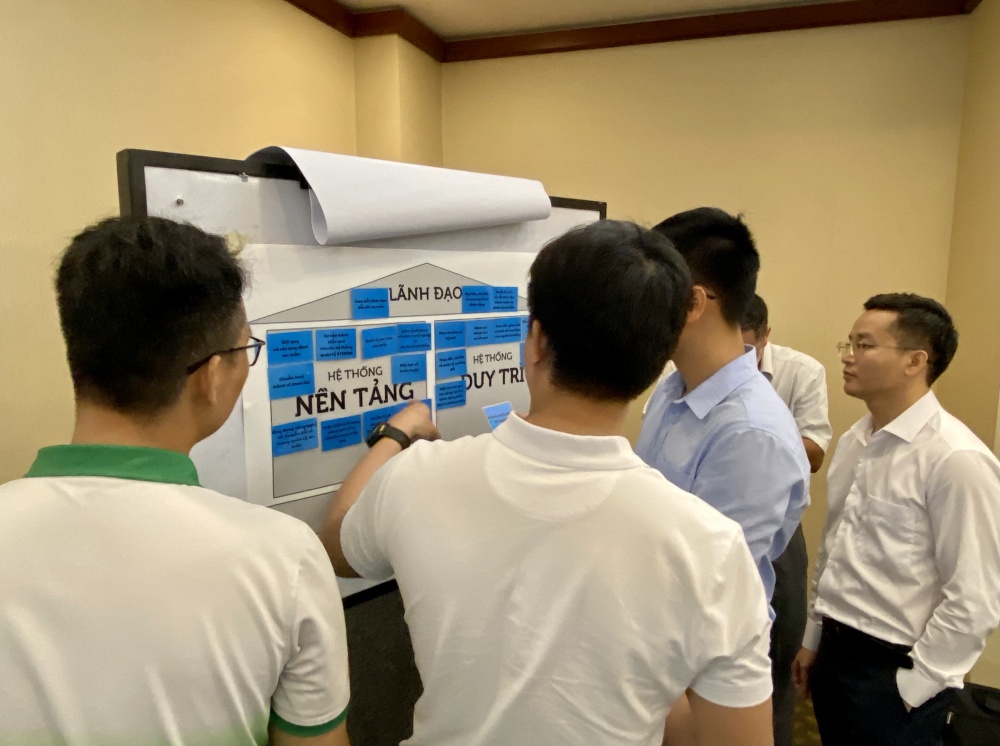 |
Giai đoạn tự chủ là sự tuân thủ của người lao động đối với các nội quy, quy định về an toàn mang tính chủ động của chính họ. Người lao động không quan tâm và bị ảnh hưởng bởi các cơ chế giám sát. Các quy định an toàn được lồng ghép vào quy trình sản xuất và được vận hành bởi người lao động hằng ngày như một điều hiển nhiên. Người lao động cũng chủ động phát hiện những nguy cơ, rủi ro và báo cáo để tiếp tục hoàn thiện quy trình sản xuất. Giai đoạn này được chia làm 2 cấp độ: Cấp độ kiểm soát bằng quy trình - Bắt đầu tích hợp, lồng ghép quy định, yêu cầu an toàn vào quy trình vận hành sản xuất và trao quyền kiểm soát cho người lao động; Cấp độ tự chủ, còn gọi là văn hóa an toàn tự chủ.
Giai đoạn đội nhóm là giai đoạn người lao động bắt đầu thể hiện sự quan tâm đến an toàn của người khác bao gồm đồng nghiệp, nhà thầu, khách... Người lao động sẵn sàng can thiệp, lên tiếng nhắc nhở nếu phát hiện hành vi không an toàn bởi vì đối với họ đó là điều không thể chấp nhận được.
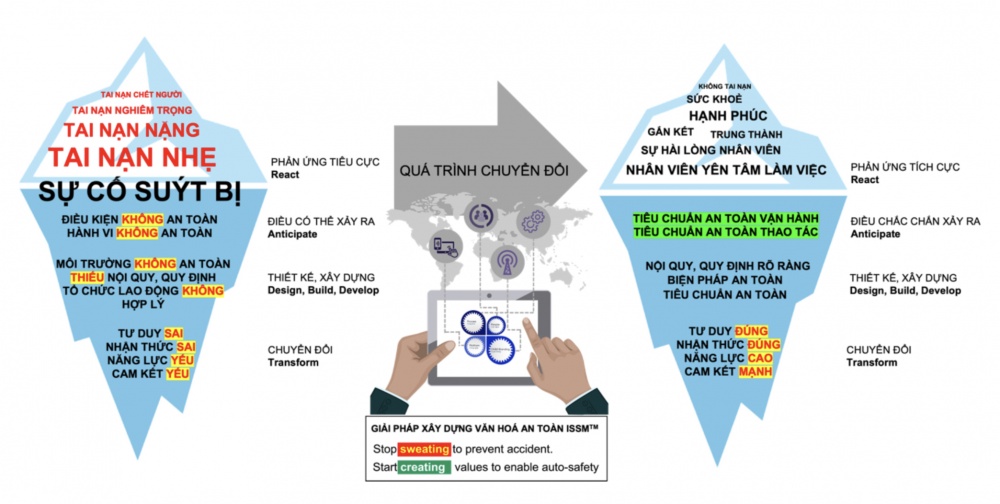 |
| Quá trình chuyển đổi văn hóa an toàn trong doanh nghiệp |
Theo diễn giả Quản Hồng Đức, chuyển đổi văn hóa an toàn là một quá trình không phải là một chương trình. Khi quá trình này được thực hiện một cách có hệ thống với sự cam kết cao, sự thay đổi về chất sẽ xảy ra và tạo ra các cải thiện có thể đo lường được ở tất cả các tổ chức, nhà máy sản xuất.
Hội thảo tiếp nhận nhiều ý kiến trao đổi, đóng góp sát thực tế của các cán bộ HSE đến từ các đơn vị. Qua đó có thể ứng dụng vào doanh nghiệp để xây dựng văn hóa an toàn, bảo đảm sự an toàn tối đa trong hoạt động SXKD của doanh nghiệp. Văn hóa an toàn không chỉ là một nét văn hóa mang đậm chất nhân văn của doanh nghiệp mà còn có thể giúp doanh nghiệp tạo ra những thành tích đáng kể trong kinh doanh. Các nhà lãnh đạo cần hiểu rằng văn hóa an toàn phải được xây dựng trước hết bằng cái tâm của người quản lý và cái tâm đó được thể hiện bằng hành động: làm tất cả những gì có thể làm được vì sự an toàn cao nhất cho người lao động.
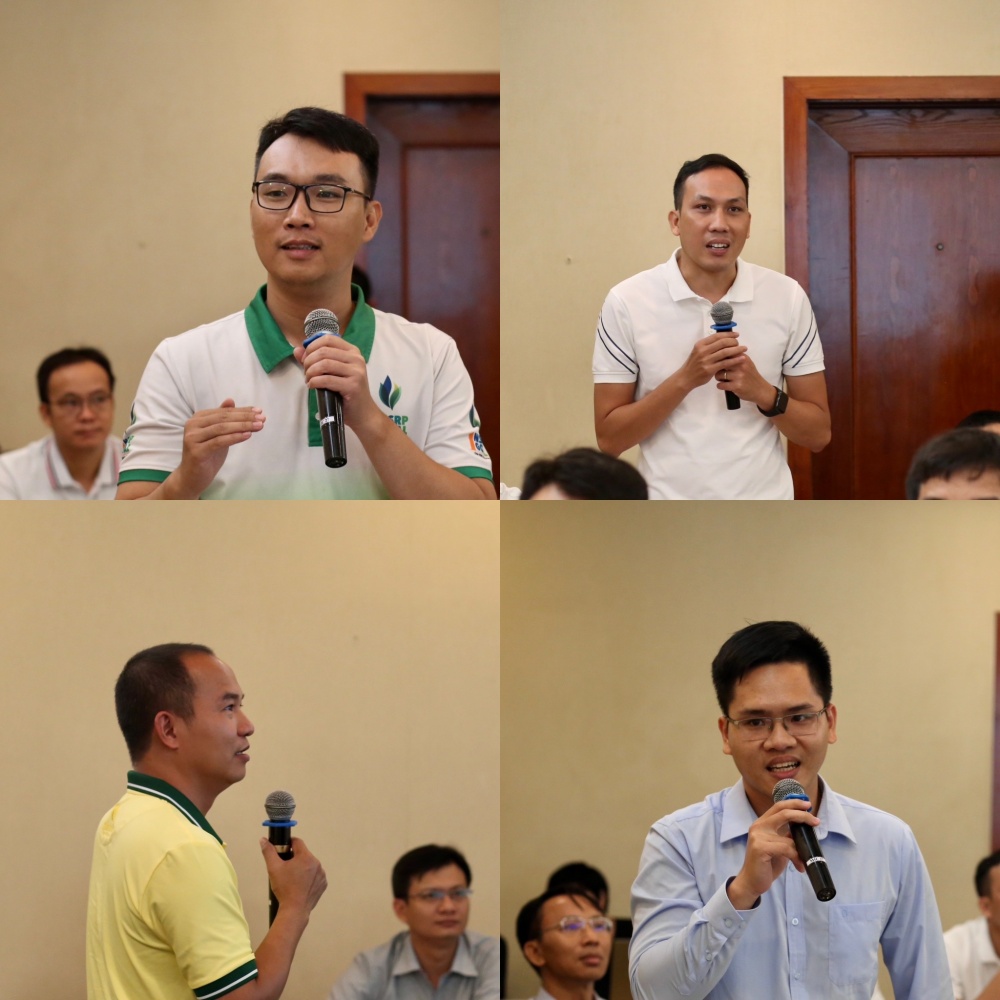 |
| Các đại biểu trao đổi tại hội thảo |
Diễn giả Quản Hồng Đức khẳng định: “Xây dựng văn hóa an toàn trong doanh nghiệp mang lại rất nhiều lợi ích, đó là tạo nên tiêu chuẩn để hướng đến thành tích cao; tạo nên con người có tính kỷ luật; làm nền tảng cho hoạt động sản xuất hoàn hảo; giảm tai nạn lao động kể cả là tai nạn nhẹ; nâng cao thương hiệu nhà tuyển dụng, gia tăng sự gắn kết cho người lao động”.
Trong hội thảo, các đại biểu cũng chia sẻ thực tiễn tại đơn vị mình cũng như nghe bài học kinh nghiệm về xây dựng văn hóa an toàn tại một số doanh nghiệp lớn.
|
Trung tâm Bồi dưỡng nâng cao (Trường Đại học Dầu khí Việt Nam) thường xuyên thiết kế và tổ chức các chương trình đào tạo nâng cao, chuyên sâu trong lĩnh vực dầu khí và năng lượng. Bên cạnh đó, Trung tâm tiếp tục đồng hành triển khai Đề án tái tạo văn hóa doanh nghiệp của Tập đoàn đến các doanh nghiệp trong ngành, tận dụng thế mạnh về sự am hiểu ngành nghề, cơ sở vật chất, cơ sở dữ liệu, các đối tác và chuyên gia trong nước và quốc tế để xây dựng giải pháp đưa các giá trị văn hóa cốt lõi vào thực tiễn hoạt động của đơn vị, nâng cao hiệu quả sản xuất kinh doanh và hướng đến sự phát triển bền vững. |
On the morning of September 29th, the 6th International Conference on Chemical Engineering, Food, and Bio Technology (ICCFB 2023) and the 27th Regional Symposium on Chemical Engineering (RSCE 2023) were inaugurated in Ho Chi Minh City. These prestigious events were co-organized by Petrovietnam University (PVU) and Ho Chi Minh City University of Technology.
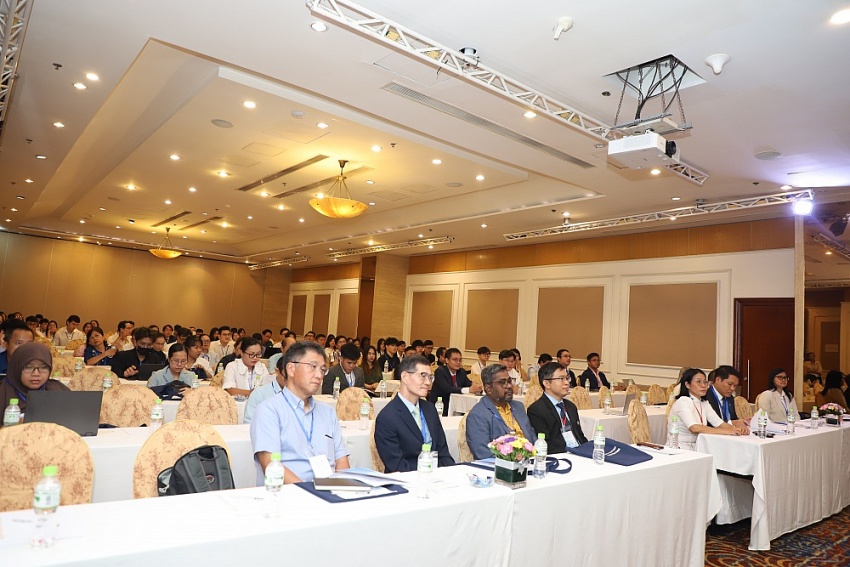 |
 |
The conference gathered numerous scientists, experts, scholars, engineers, and students from both domestic and international institutions specializing in chemical engineering, food technology, and biotechnology. It was scheduled to span over two days, from September 29th to 30th, 2023, in Ho Chi Minh City.
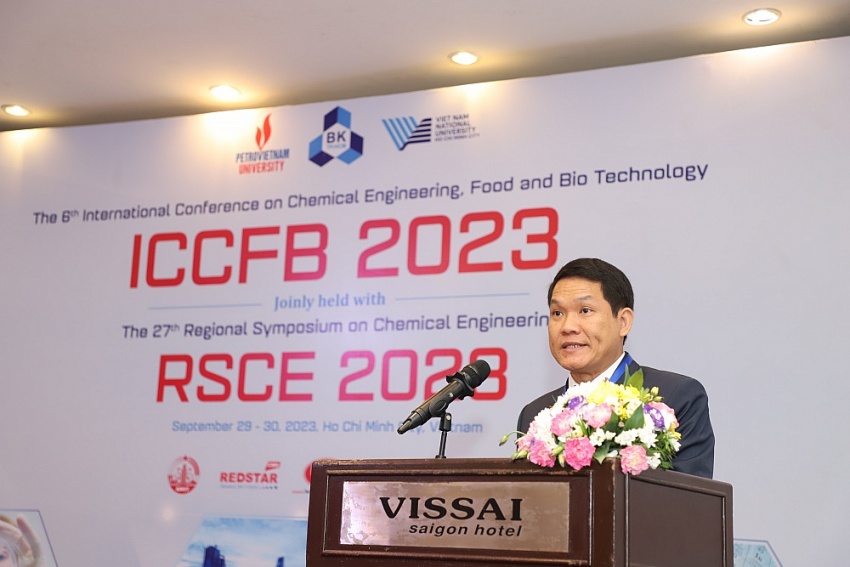 |
In his opening remarks, Dr. Phan Minh Quoc Binh, Rector of PVU, stated that the conference aimed to establish a beneficial forum for the exchange, discussion, and dissemination of research findings from scientists worldwide. It served as an advantageous opportunity for Vietnamese and international scientists and experts to share experiences and transfer technology in the fields of Chemical Engineering, Food, and Bio Technology.
Dr. Phan Minh Quoc Binh further informed that the conference received 150 reports from scientists from the USA, China, Australia, Japan, South Korea, Taiwan, Thailand, Malaysia, Indonesia, Vietnam, and more. Notably, 100 outstanding reports were meticulously selected and published in reputable journals.
On behalf of the organizing committee, Dr. Phan Minh Quoc Binh expressed his hope that the conference would provide the attendees with innovative ideas and practical experiences to establish cooperative relationships and seek partners for future collaboration, both domestically and internationally.
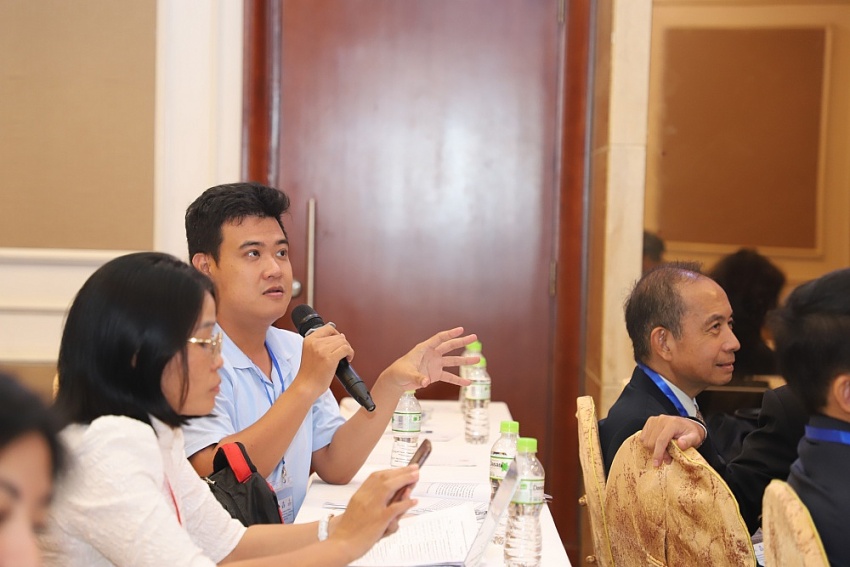 |
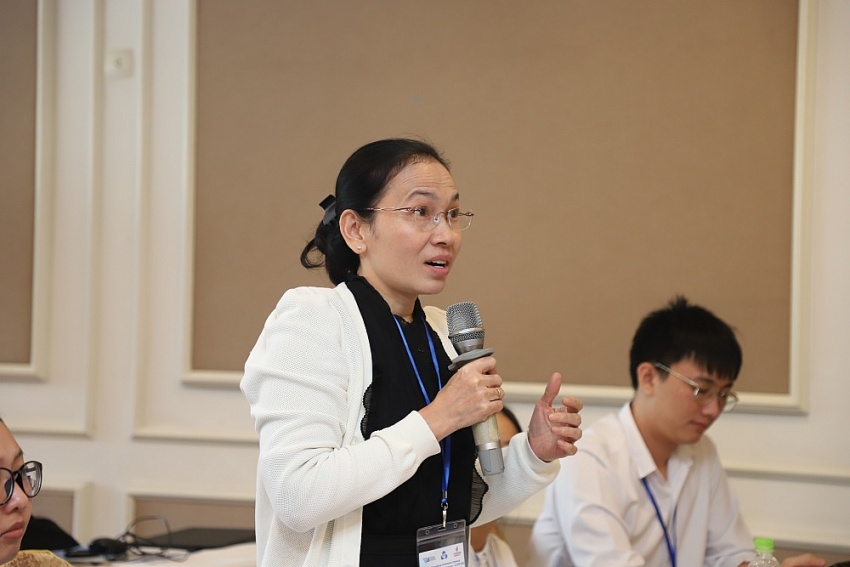 |
The conference was vibrant with discussions on main topics including Catalysis and Materials Engineering, Food and Bio Engineering, Control Engineering, Environmental and Safety Engineering, and more. PVU students presented notable topics, contributing to the lively academic atmosphere of the conference.
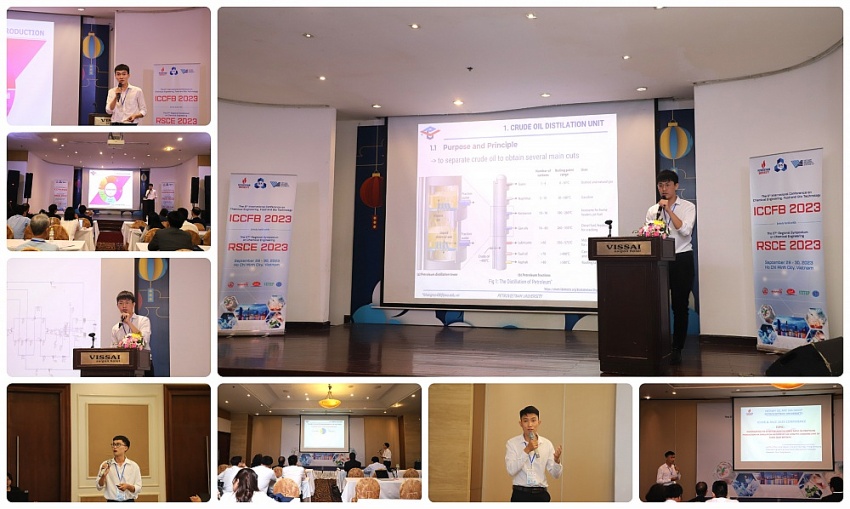 |
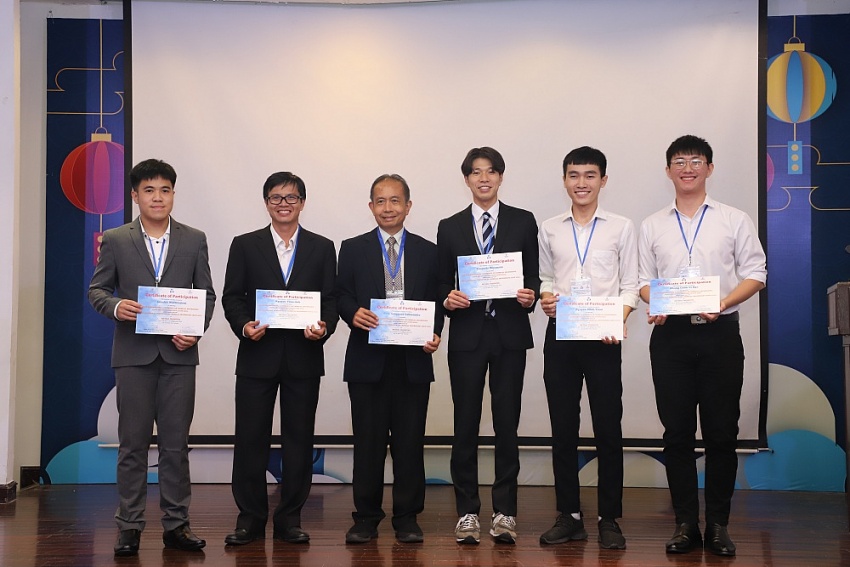 |
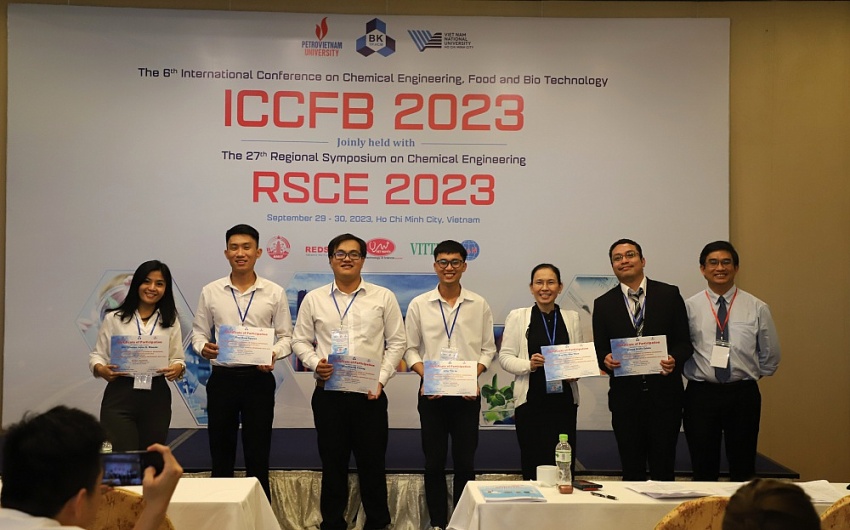 |
Dr. Phan Minh Quoc Binh also extended his gratitude to all organizations and individuals contributing to the conference's success, including speakers, scientists, cooperating universities, financial contributors, sponsors, supporters, faculty, and students. Special appreciation was also conveyed to Hoa Binh Company and The Vissai Hotel for their invaluable assistance in organizing this event.
In his welcome and opening remarks, Dr. Phan Minh Quoc Binh introduced Petrovietnam University as a subsidiary of the Vietnam Oil and Gas Group, or Petrovietnam, emphasizing its commitment to developing high-quality human resources and aligning scientific research and training with practical applications in the oil and gas industry. He highlighted the university’s ABET-accredited petroleum engineering programs and its substantial contributions to Petrovietnam’s research. He warmly invited all distinguished guests and scientists to visit PVU’s campus in the scenic province of Ba Ria-Vung Tau and explore opportunities for collaboration in scientific research and training at PVU.
In conclusion, Dr. Phan Minh Quoc Binh expressed his belief in the conference's success and wished all the distinguished guests good health, happiness, and success. He thanked everyone for their attention and participation and hoped that they would enjoy the conference and have interesting experiences in Ho Chi Minh City.
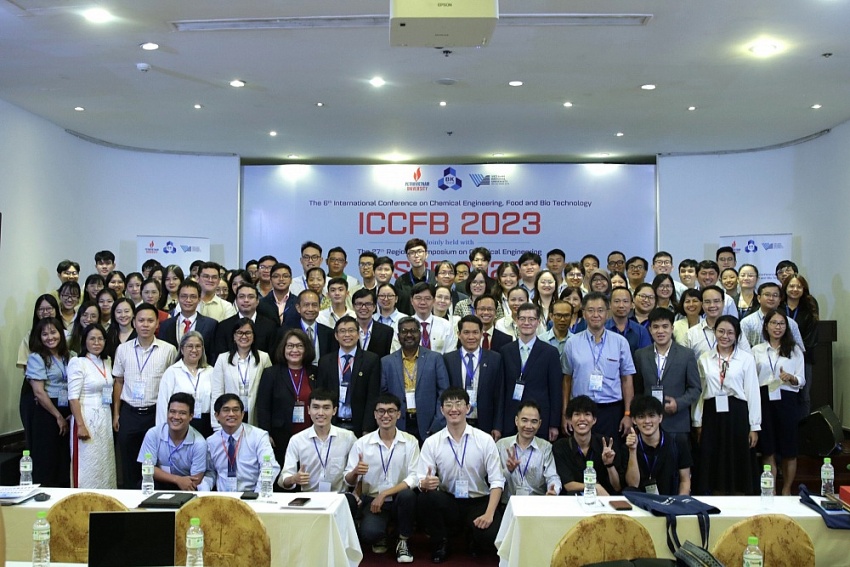 |
| Các đại biểu tại Hội nghị |
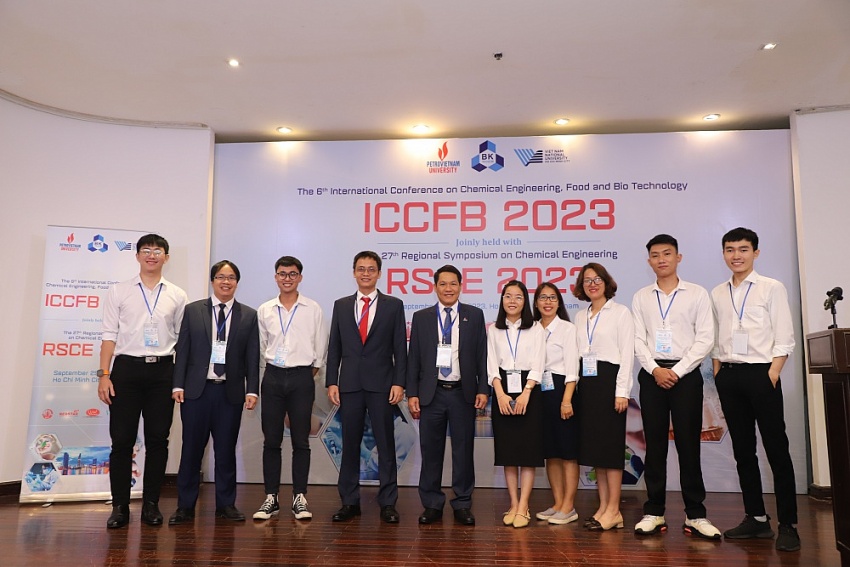 |
An Nhiên
Petrovietnam University is elated to co-host the esteemed 6th International Conference on Chemical Engineering, Food, and Bio Technology 2023 (ICCFB 2023) and the 27th Regional Symposium on Chemical Engineering (RSCE 2023). The conference is scheduled to take place in Ho Chi Minh City, Vietnam, from September 29th-30th, 2023.
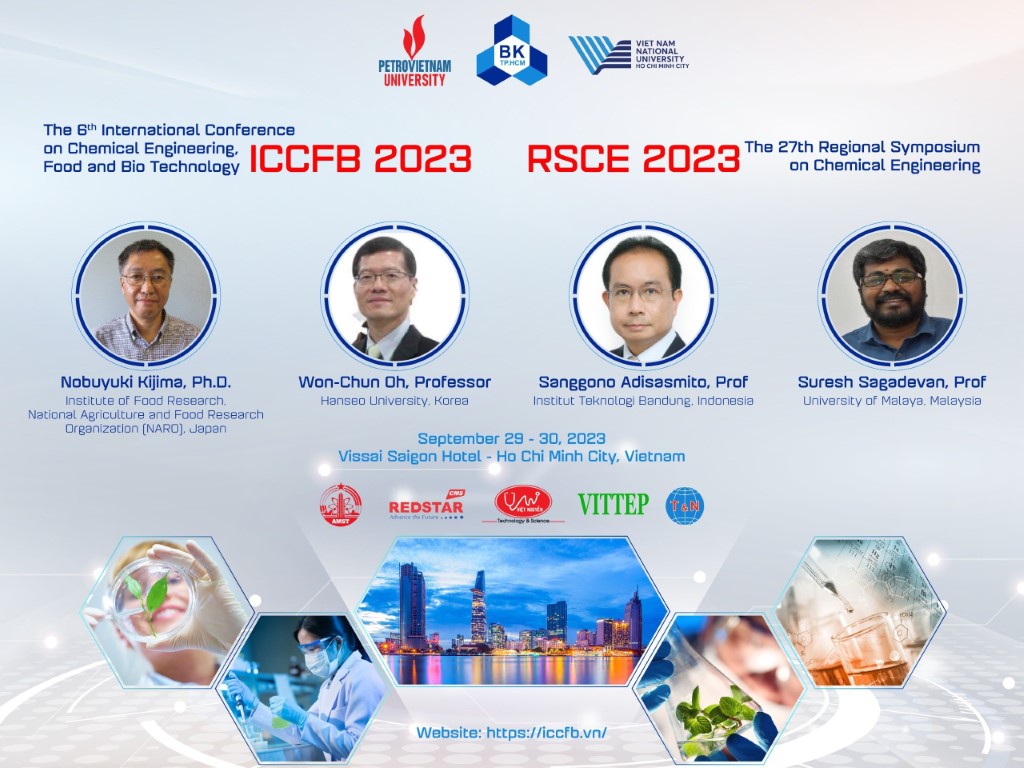
This prestigious event will assemble innovative academics, industry experts, researchers, developers, engineers, students, and practitioners from Vietnam and around the world, fostering an environment of learning, networking, and knowledge exchange in the fields of Chemical Engineering, Food, and Bio Technology.
Main Themes of the Conference include:
- Catalyst and Material Engineering
- Biotechnology and Food Technology
- Process and Control Engineering
- Environmental and Safety Engineering
Publication Opportunities:
Selected papers will be featured in reputable publications including:
- IOP Conference Series (Scopus-indexed)
- Science & Technology Development Journal (STDJ, VNU-HCM Journal)
- Chemical Engineering Transactions (Scopus, Q3)
Objective:
The main goal of ICCFB 2023 & RSCE 2023 is to advance research and development activities in Chemical Engineering, Food, and Bio Technology, and to facilitate scientific information interchange. The symposiums offer an ideal platform for attendees to share insights and experiences in related areas.
Host and Co-host:
The conference is hosted by the Faculty of Chemical Engineering, Ho Chi Minh City University of Technology (HCMUT), VNU-HCM and proudly co-hosted by Petrovietnam University.
We encourage all members of the PetroVietnam University community, stakeholders in the field, and interested parties to partake in this significant event to stay abreast with the latest advancements, research developments, and innovations in Chemical Engineering, Food and Bio Technology.
For Regular Updates:
Please stay tuned to our website and official communication channels for regular updates, keynote addresses, insights, and key takeaways from ICCFB 2023 & RSCE 2023.
On the 31st of July, a strategic meeting between Petrovietnam University (PVU), the Ho Chi Minh City University of Technology (HCMUT), and Zarubezhneft EP Vietnam took place at the Vietnam Petroleum Institute, situated in the Ho Chi Minh City High-Tech Park.
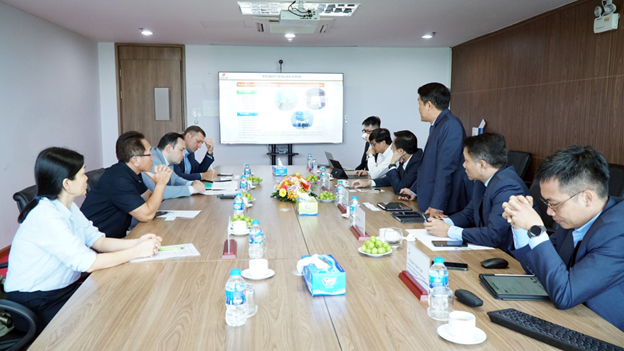
Glimpse into the Engaging Working Session
Following a warm welcome and introduction by the host, the attendees began to present their respective institutions. Representing PVU, Rector Dr. Phan Minh Quoc Binh elucidated PVU's core strengths, educational programs, and future directions. Highlighting the strong ties between PVU and both domestic and international petroleum companies, he underlined PVU's impressive student placement rate post-graduation and the opportunities they extend for overseas education and internships.

Dr. Phan Minh Quoc Binh, Rector of PVU, Unveils PVU's Operations and the Scope for Collaboration
In turn, Associate Prof. Dr. Mai Thanh Phong, Rector of HCMUT, shed light on the historical trajectory and achievements of HCMUT. The rector emphasized their globally recognized engineering programs and adherence to international assessment standards, such as HCERES, AUN-QA, ABET, FIBAA, AQAS, and BSI.
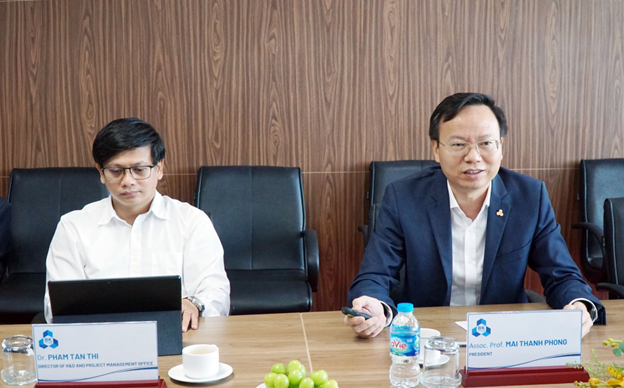
Associate Prof. Dr. Mai Thanh Phong, Rector of HCMUT, Provides Valuable Insights
Zarubezhneft EP Vietnam's CEO, Mr. Alexander Mikhaylov, then provided insight into the company's exploration and production operations within Vietnam, sharing the firm's investment strategy and development vision. Furthermore, he expressed a keen interest in acquiring young talent, stating Zarubezhneft's readiness to support student internships and offer job opportunities to those who meet their requirements.
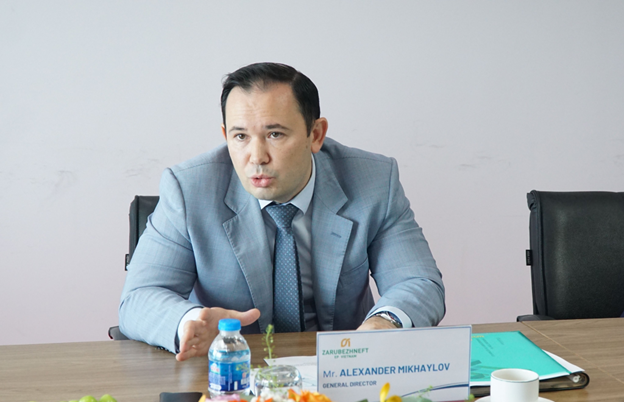
Mr. Alexander I. Mikhaylov, CEO of Zarubezhneft EP Vietnam, Engages in Dialogue on Potential Collaboration
During the subsequent question and discussion session, both PVU and HCMUT showcased a keen interest in establishing a collaboration with Zarubezhneft. Potential areas of collaboration were identified, including training, research and development, technology transfer, talented student recommendation, scholarship and equipment sponsorship, and internship facilitation. Detailed discussions on the specifics of such collaboration were agreed to be conducted.
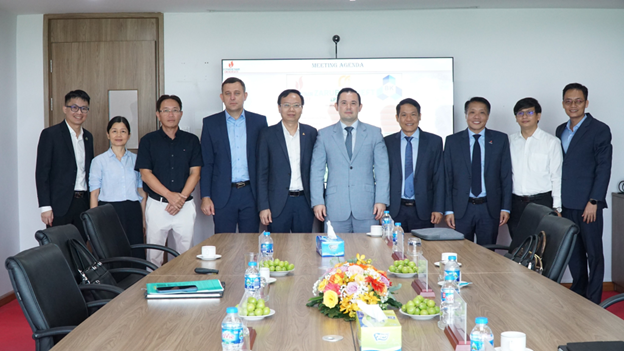
Mutual Consensus on Cooperation Principles Reached Among All Parties
The meeting was brought to a close with all parties reaching a consensus on the cooperative principles. The professional departments of each institution will now proceed to work out the implementation details, which will be formalized through a cooperation agreement. This gathering showcased the shared commitment of these institutions towards enhancing educational and employment opportunities within Vietnam's petroleum sector.
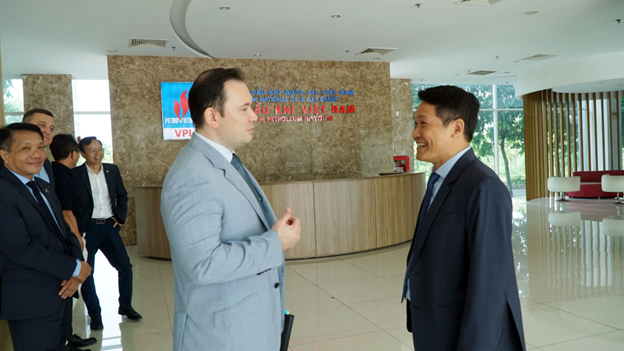
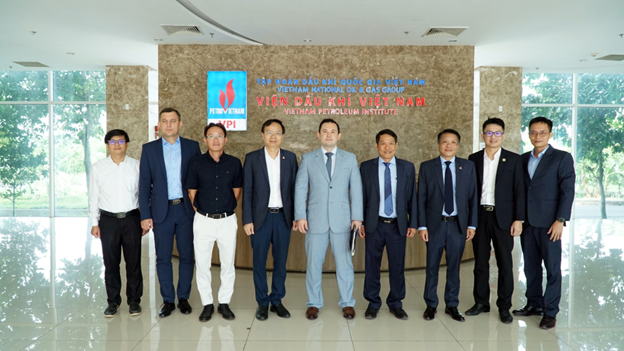
Parties Continue Collective Efforts to Refine Specifics of the Cooperation Agreement


